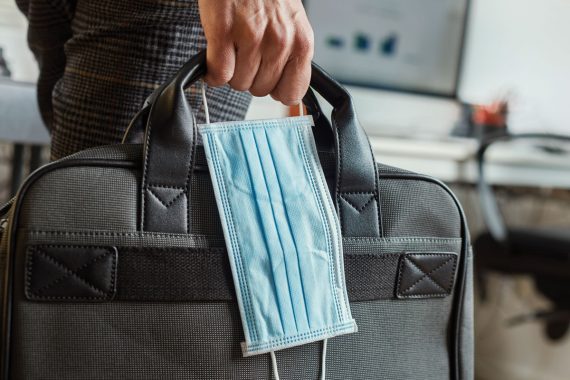The Department of Health and Social Care (DHSC) has said it is ‘hugely grateful’ to GPs and practice staff for their ‘hard work and dedication’.
But it added that GPs ‘must take the preference of the patient on board and provide face-to-face appointments to those who want them’.
It comes amid the ongoing row over GP access and the provision of in person appointments, with GPs coming under fire from sections of the mainstream media and some politicians, as well as from patients.
In a statement, a DHSC spokesperson said: ‘We are hugely grateful to GP practices for their hard work and dedication.
‘In August 2021, there were 1.21 million appointments every working day, including for Covid-19 vaccination delivered in general practice, which is an 8.6% increase compared to the same time in 2019.’
However, they added: ‘We are clear GP practices must take the preference of the patient on board and provide face to face appointments to those who want them, alongside remote consultations.
‘We have provided £270 million to expand GP capacity, on top of investing £1.5 billion to the sector until 2023/24 to deliver world-class care to patients.’
The Prime Minister last month said that GPs should see patients face to face – but Downing Street refused to clarify to Pulse whether this should be based on need or want.
Deputy Prime Minister Dominic Raab also said last month that patients ‘rightly expect’ to see their GP in person ‘when necessary’.
However, speaking at the Conservative Party conference last week, health secretary Sajid Javid said that remote consultations are here to stay ‘post-pandemic’.
The DHSC statement comes as the 2019 GP Worklife Survey, published in June, has been widely reported in the mainstream media today.
Responding to claims that the average GP is now ‘working a three-day week’ – based on the report’s findings of an average 6.6-session week – the BMA said that focussing purely on sessions worked is ‘an incredibly crude measure’.
BMA GP Committee chair Dr Richard Vautrey said: ‘Each morning or afternoon session of work for a GP is defined as four hours and 10 minutes long. In reality, the sheer scale of workload means that both a morning session and an afternoon session often extend well beyond this, which means many GPs in reality work 10 to 12-hour days.’
He added: ‘When even “part-time” GPs are working at such a pace, it’s clear to see that current levels of workload – made worse by piles of admin and bureaucracy – are not sustainable. By removing some of this unnecessary bureaucracy, GPs would be able to devote more of their working hours to seeing patients who need them.’
And the ‘notion’ of a part-time GP is ‘anything but’, Dr Vautrey added, saying that GPs working fewer sessions ‘may well be’ doing other work such as training younger doctors and medical students, working in hospitals or conducting research.
He said that the ‘flexibility’ offered by general practice careers ‘should be celebrated and not condemned’, as it allows people of all backgrounds and to balance their work with other commitments such as family and caring responsibilities.
‘Without embracing this, we risk losing these talented clinicians all together and therefore making access and workload problems a lot worse’, he added.
Pulse reported in June that the 2019 GP Worklife Survey found that GPs in England were working an average of 40 hours per week on both clinical and non-clinical NHS work.
The DHSC spokesperson also reiterated that it will shortly set out details of investment to support general practice capacity and improve access during the second half of the year.
Last week, the Scottish Government announced that £28m in winter funding comes with the expectation of an increase in GP face-to-face appointments.

















No one is seeking your gratitude. Wake up and smell the dying roses. They’re also not idiots to sweet talk, narcissistic manipulation and perverse psychological threats and manipulation.
Aw shucks.